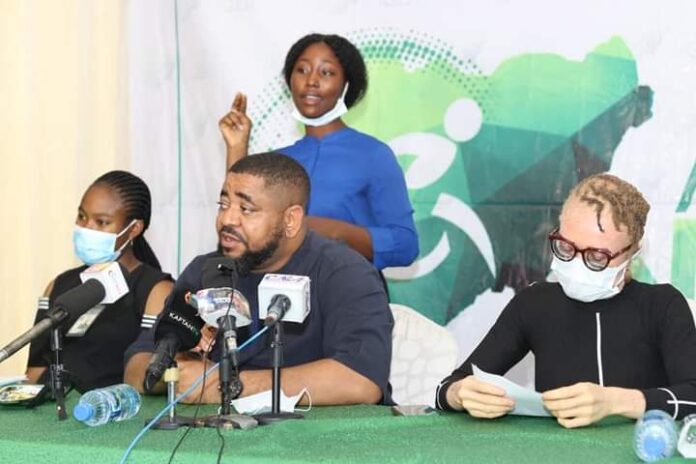INEC stated in Abuja on Wednesday that it has made adequate preparations to improve the participation of Persons With Disabilities (PWDs) in the upcoming gubernatorial election in Osun and Ekiti.
Prof. Abdulganiy Raji, INEC Resident Electoral Commissioner in Osun, made this known at the 7th Access Nigeria Campaign Stakeholder Roundtable on Inclusive Elections in Nigeria.
Raji said equipment was provided to ensure the electoral framework and environmental barriers were fixed.
He said that the INEC wanted more inclusive elections and had taken some steps to ensure that PWDs were included in the electoral processes.
“Not only are we preparing braille ballot papers for the visually impaired, but we are also providing braille jackets.
“People with disabilities will use the same ballot papers that others are using, but the ballot paper will now be inserted into Braille jackets.
“This means that every visually impaired person in a voting unit can wear a braille jacket.
“It’s not about printing 174,000 ballots in Braille, but now one dust jacket will cover them all. We have also made provisions for a considerable number of magnifying glasses in each room,” she said.
Raji added that INEC was also providing sign language interpreters for the hearing impaired.
He added that INEC would provide specialized torches to help albinos see clearly in voting units.
In her comments, Inclusive Friends Association (IFA) Disability Inclusion Officer, an NGO, Tracy Onabis, expressed concern that people with disabilities continued to face significant barriers to participating in elections.
She represented IFA Executive Director Grace Jerry at the roundtable.
Jerry pointed out that the barriers faced by people with disabilities deter them from participating in elections.
She said the roundtable was aimed at securing commitments for the introduction of electoral reforms such as the introduction of the Braille ballot guide for the visually impaired and voting instructions for hearing-impaired voters.
Jerry said the roundtable became imperative because IFA deployed sample-based election observation for the November 6, 2021 Anambra gubernatorial election and noted the barriers experienced by people with disabilities.
“IFA noted that in 34 percent of the polling units sampled in the Anambra election, people with disabilities did not have priority to vote according to INEC guidelines.
“In only 20 percent of the voting units visited did voters with visual impairments use the Braille ballot guide.
“This issue showed that if the Braille ballot guide was available in more voting units, more voters with visual impairments would have been able to use it.
“Access Nigeria observers reported that 54 per cent of the routes (roads) leading to the areas where the sampled voting units were located were inaccessible to persons with disabilities,” it said.
Jerry added that as the 2022 gubernatorial cycle elections approached in Ekiti and Osun, the group was confident that electoral stakeholders would once again commit to making elections accessible to people with disabilities.
In his contribution, Mr. Bem Aga, Director of Programs at the National Democratic Institute (NDI) said that the roundtable was one of many platforms created to promote the implementation of recommendations for persons with disabilities.
“Implementing the IFA recommendations, which include making voting units more physically accessible to people with disabilities, will go a long way in making the Ekiti and Osun elections more accessible to people with disabilities,” he said. .
Aga said that NDI was hopeful that INEC and other stakeholders would commit to making the Ekiti and Osun elections more accessible to people with disabilities and honor the commitments.
The roundtable was organized at their Nigeria Access Campaign with the support of NDI and other partners.


